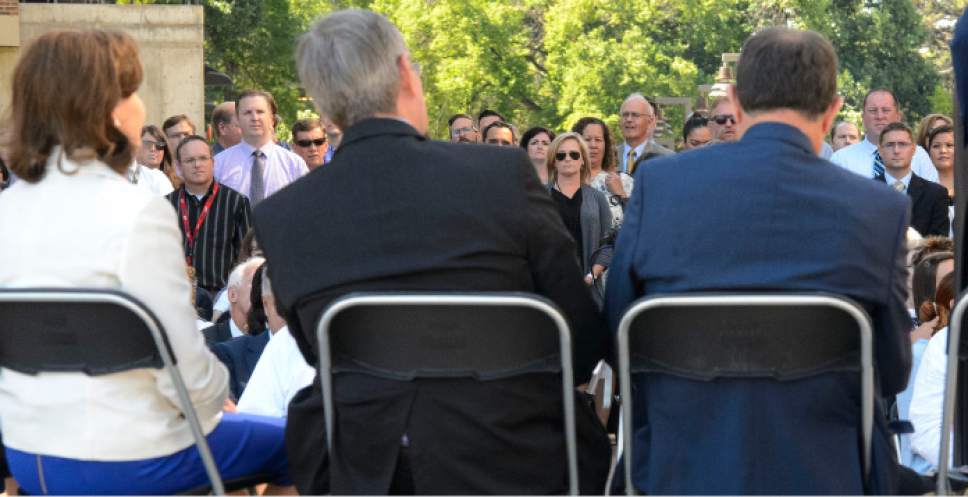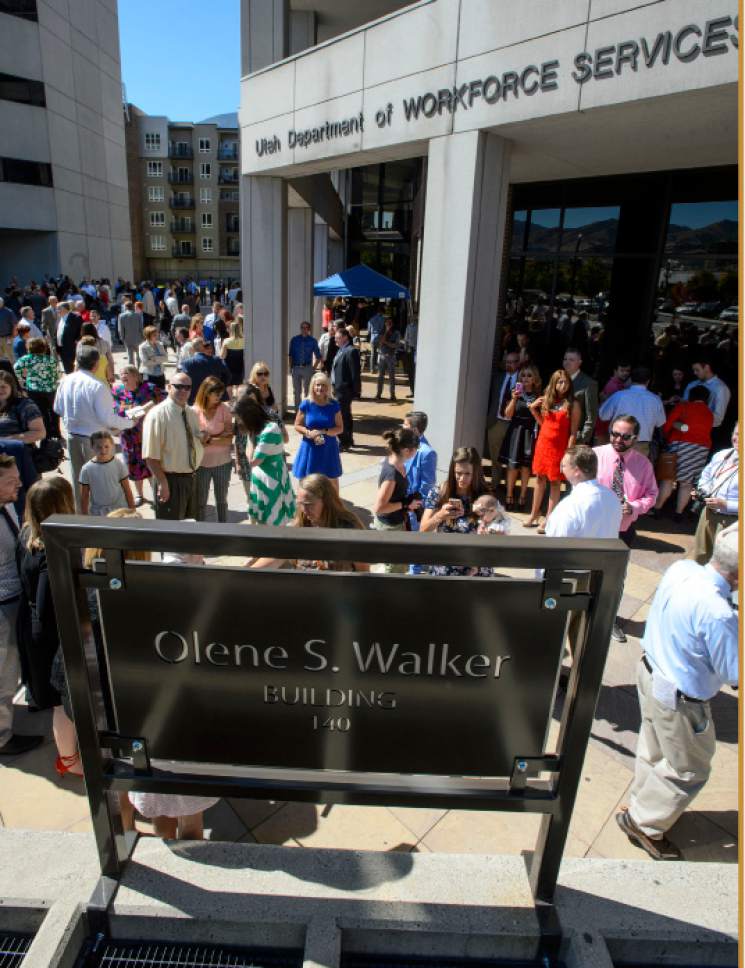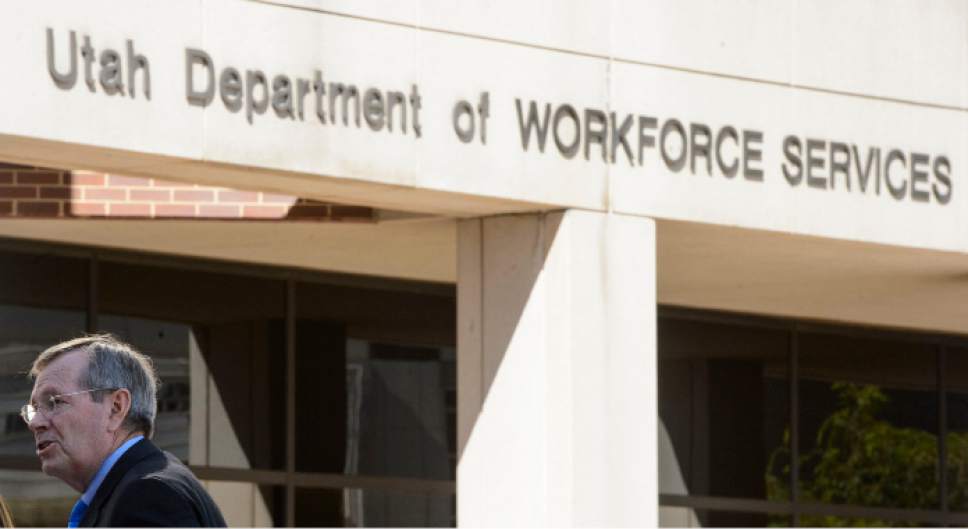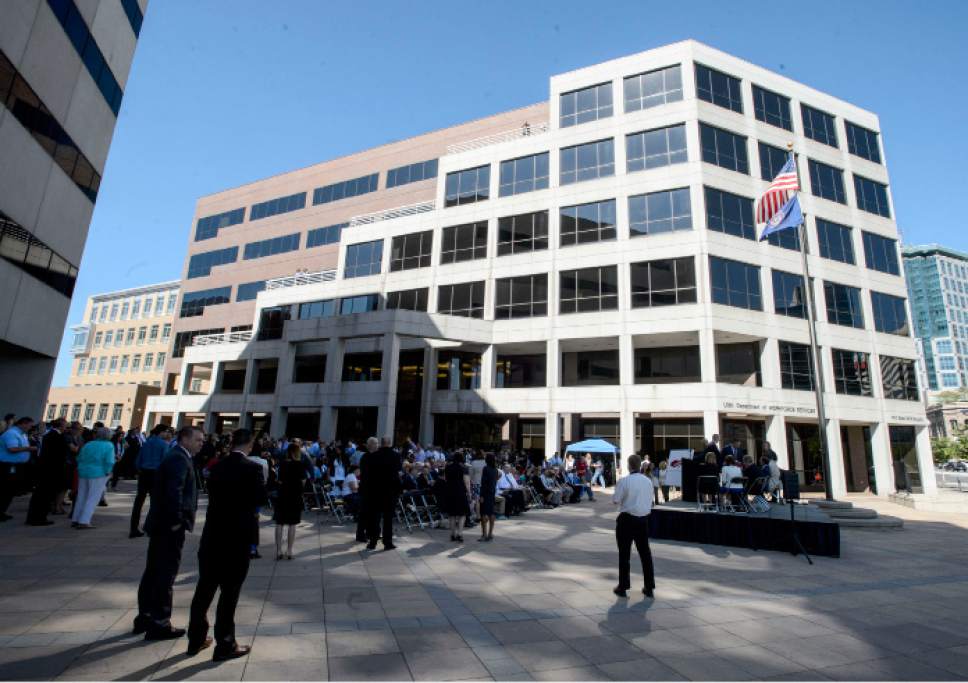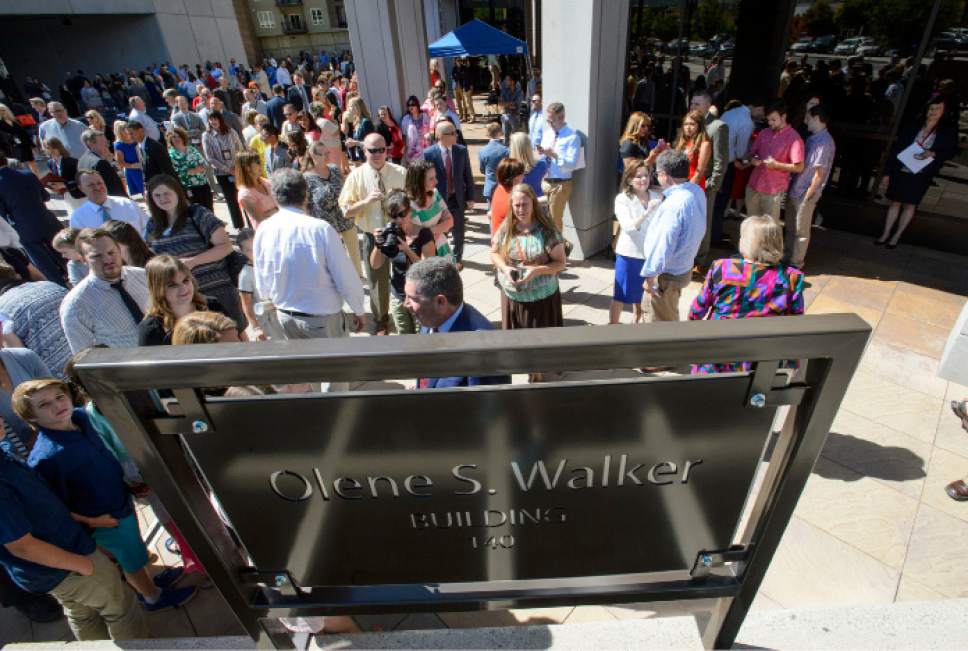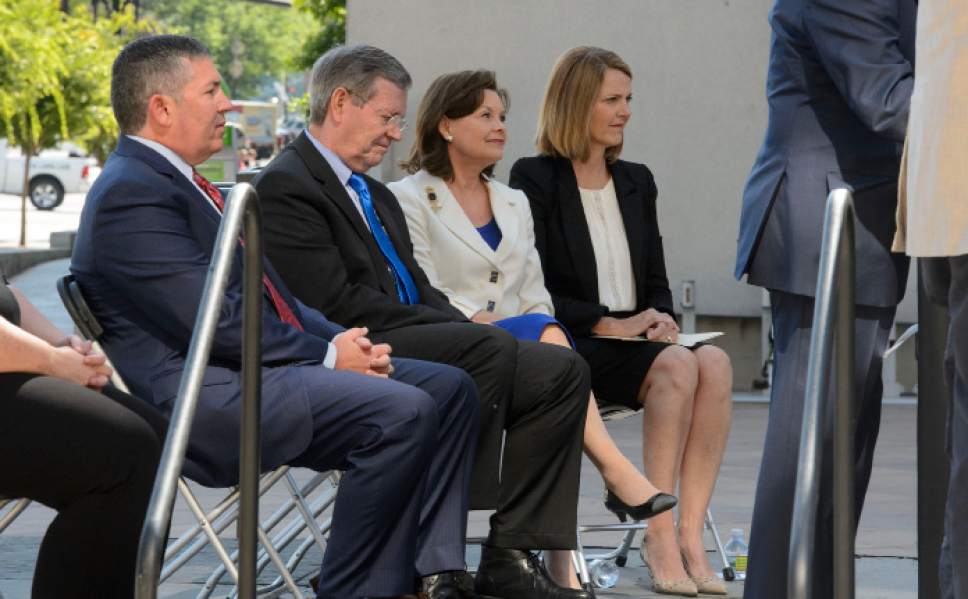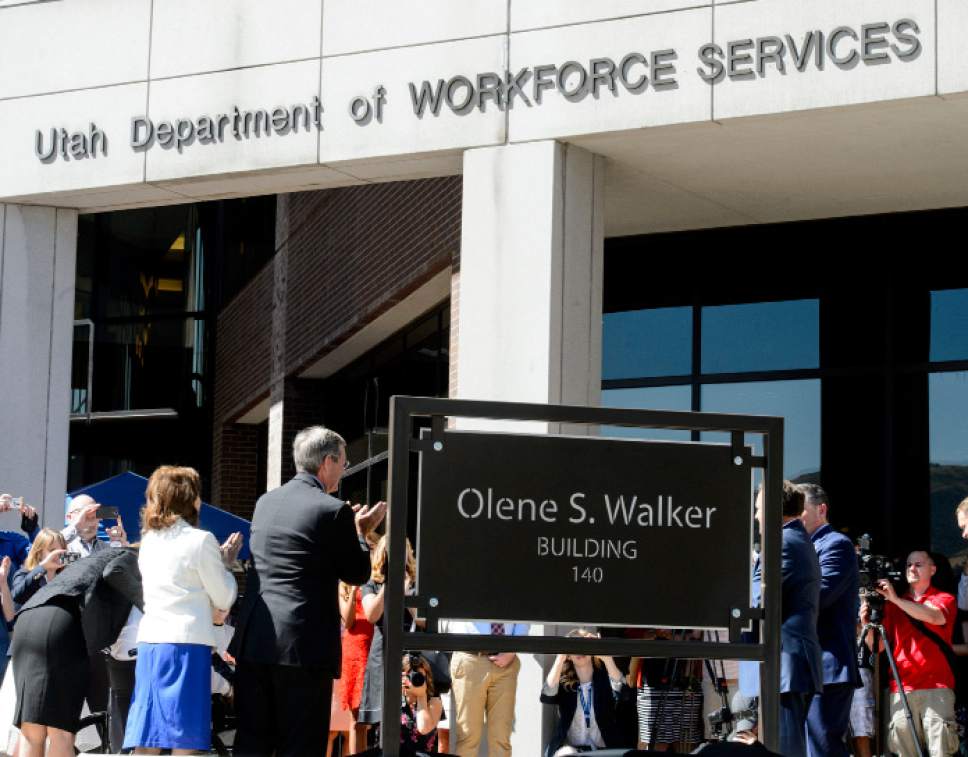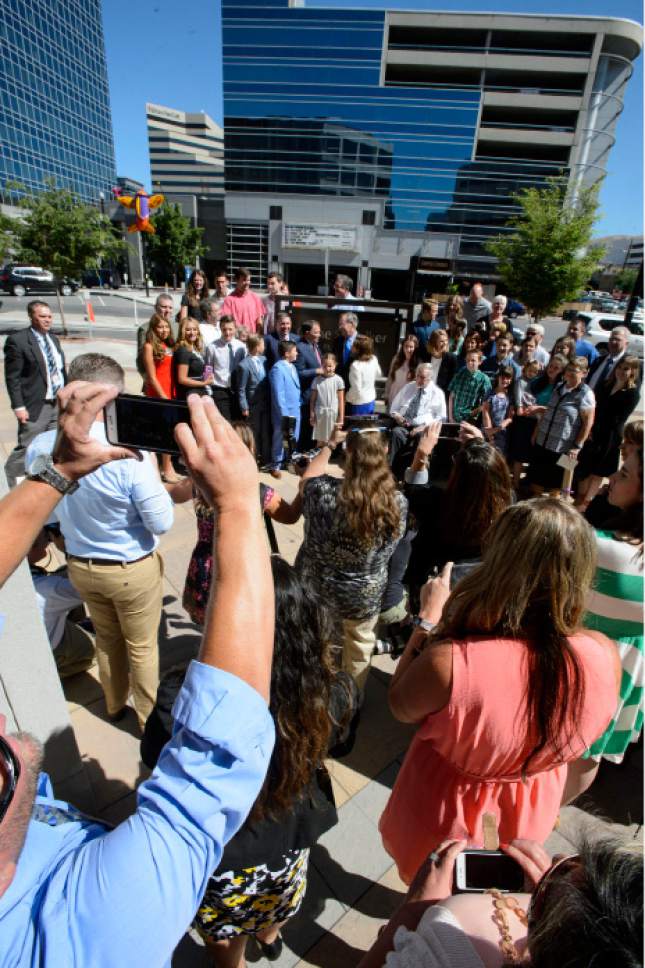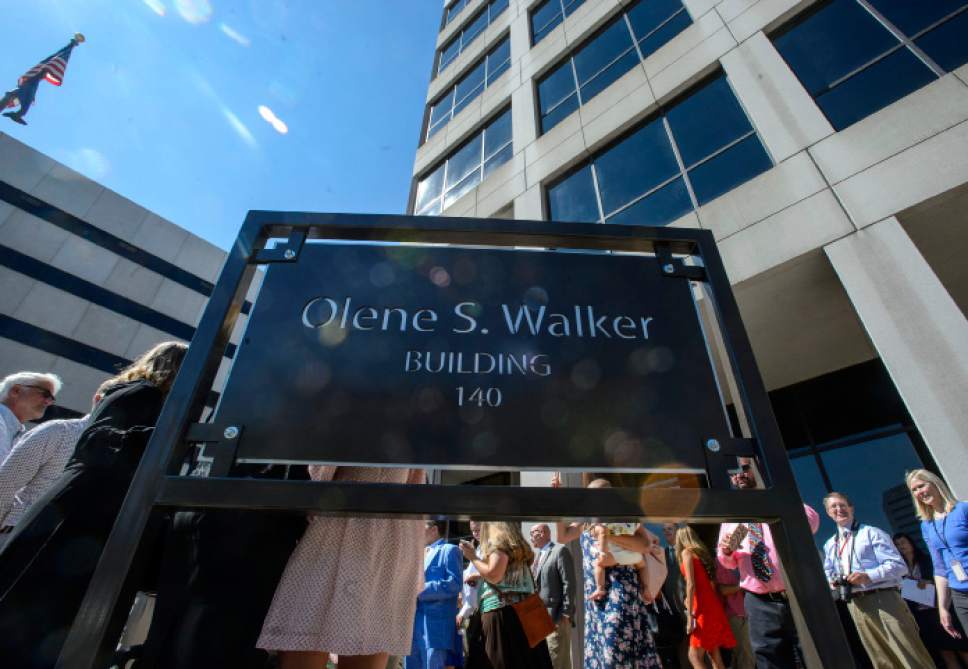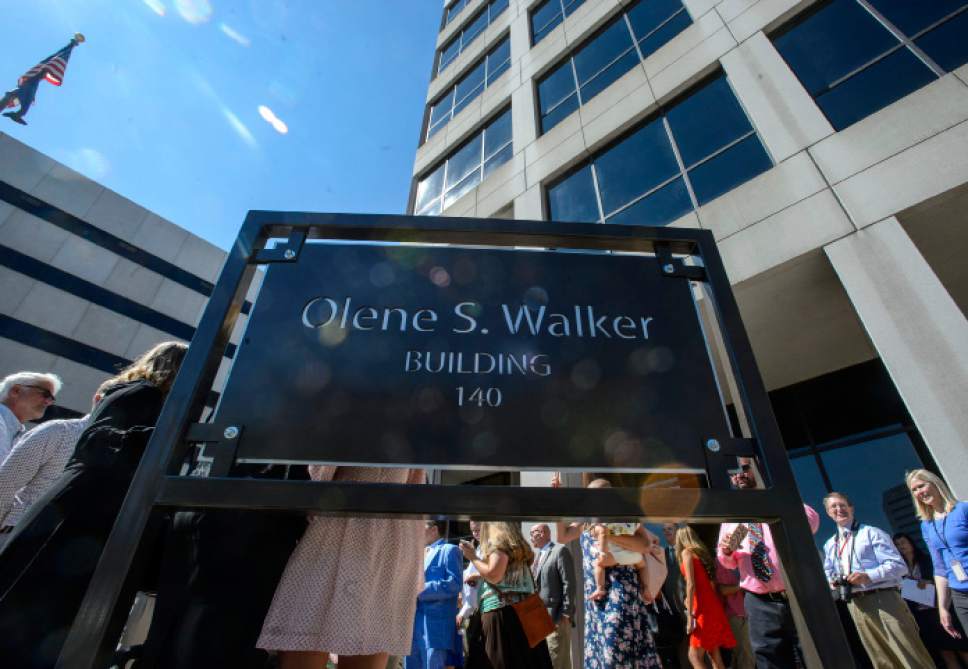This is an archived article that was published on sltrib.com in 2017, and information in the article may be outdated. It is provided only for personal research purposes and may not be reprinted.
Twenty years ago, Olene Walker was the driving force behind making Utah the first state to consolidate its employment and public assistance programs — which later became a model nationwide.
On Thursday — the 20th anniversary of the resulting Department of Workforce Services — the state honored those efforts by the late governor by naming in her honor the agency's downtown Salt Lake City headquarters.
"We had nearly 30 different programs in various departments in state government [dealing with assistance and employment]," former Gov. Michael Leavitt recalled, "and it just cried out for a better solution." Walker was then his lieutenant governor and replaced him as governor when he resigned to join President George W. Bush's Cabinet.
"Olene came to me and said, 'We don't need a new program, we need to knit this into a new department and call it the Department of Workforce Services,' " where people could obtain one-stop shopping for public assistance and job searches, he said. Walker then led a task force that developed the new agency.
Several hundred family and friends of Walker, including her widower, Myron, gathered Thursday to name the building at 140 E. 300 South in her honor, and to praise her and the department she helped to build.
Walker died in 2015.
"The Department of Workforce Services really represents everything my mother stood for," said Nena Slighting, Walker's daughter. "Olene's greatest legacy is she truly cared about people. She took the time to listen to others, to empathize with their circumstances, and then she sought solutions to their problems."
Gov. Gary Herbert said Walker showed, "We need to remember we are in the people business, and we're trying, in fact, to improve people's lives. The center of that effort really is the Department of Workforce Services that has done so much in so many areas to help lift people up."
For example, he said, while much of the nation argues about whether to admit more refugees, DWS has deftly helped them to integrate and find jobs — without stoking safety worries.
"Utah has been able to find a compassionate way to make sure we have people who have integrated into our system here — refugees who are escaping terrorism — and yet protect the safety and welfare of our people here in Utah," the governor said. Leavitt remembered Walker as "a triple-tasking, night owl, working mother of seven, who got a Ph.D. on the side, and helped run the family business. A glass-ceiling breaker and pioneer at every turn in her career, she was admired widely for her intellect."He said her joking nature could also leave everyone laughing uproariously.
"One morning she came to a meeting late to explain how she had just set a new record from her house by putting her pantyhose on as she drove and drying her hair out the window," he said. "Nobody laughed harder than she did."
Leavitt said Walker "was truly one of the great women in the history of Utah. I could not have had a better partner in service."
He added that the state Capitol should have a statue of Walker with an inscription saying she "paved the way for women … and men."
Until then, "This building will stand as a monument to her service and our admiration. Olene, we love you," he said with his eyes looking toward heaven.
Slighting said, "I am confident that Olene is smiling down on us today."


